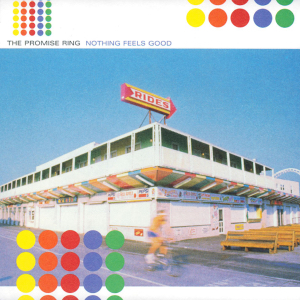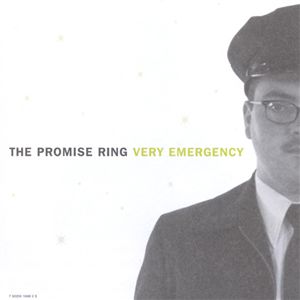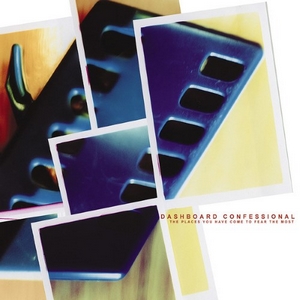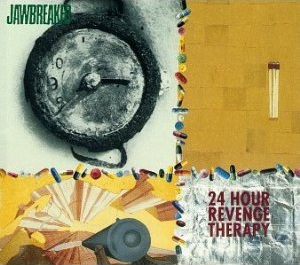Emo is a rock music genre characterized by emotional, often confessional lyrics. It emerged as a style of post-hardcore and hardcore punk from the mid-1980s Washington D.C. hardcore punk scene, where it was known as emotional hardcore or emocore and pioneered by bands such as Rites of Spring and Embrace. In the early–mid 1990s, emo was adopted and reinvented by alternative rock, indie rock and/or punk rock bands such as Sunny Day Real Estate, Jawbreaker, Weezer, Cap'n Jazz, and Jimmy Eat World. By the mid-1990s, bands such as Braid, the Promise Ring, and the Get Up Kids emerged from the burgeoning Midwest emo scene, and several independent record labels began to specialize in the genre. Meanwhile, screamo, a more aggressive style of emo using screamed vocals, also emerged, pioneered by the San Diego bands Heroin and Antioch Arrow. Screamo achieved mainstream success in the 2000s with bands like Hawthorne Heights, Silverstein, Story of the Year, Thursday, the Used, and Underoath.

Rites of Spring was an American punk rock band from Washington, D.C., formed in late 1983. Along with Embrace, and Beefeater, they were one of the mainstay acts of the 1985 Revolution Summer movement which took place within the Washington, D.C. hardcore punk scene.

Further Seems Forever is an American rock band formed in 1998 in Pompano Beach, Florida. Over its initial eight-year run the band experienced several lineup changes, resulting in a different lead vocalist performing on each of their first three studio albums. Original singer Chris Carrabba recorded The Moon Is Down (2001) with the group before leaving to start Dashboard Confessional. He was replaced by Jason Gleason, who performed on How to Start a Fire (2003) but left the band the following year. Former Sense Field vocalist Jon Bunch joined Further Seems Forever for Hide Nothing (2004). The band broke up in 2006 but reunited four years later with Carrabba on vocals. Their fourth studio album, Penny Black, was released in 2012.

The Moon Is Down is the debut album by the Pompano Beach, Florida rock band Further Seems Forever, released in 2001 by Tooth & Nail Records. It was the band's first full-length album. Vocalist Chris Carrabba had already decided to leave the band to focus on his new project, Dashboard Confessional, but joined them in the studio to record the album. Dominguez left the band the following year to start the record label Pop Up Records. The two were replaced by Jason Gleason and Derick Cordoba, respectively, for the band's next album How to Start a Fire. A music video was filmed for the song "Snowbirds and Townies."

Clarity is the third studio album by American rock band Jimmy Eat World. It was released on February 23, 1999, through Capitol Records, with which Jimmy Eat World clashed several times while recording their second studio album Static Prevails (1996). The band recorded a follow-up with producer Mark Trombino in May and June 1998, and were free to make it however they wanted without interference from Capitol. The recording sessions began at Sound City in Van Nuys, California, before moving to Clear Lake Audio in North Hollywood, California. Clarity, which is described as an emo, pop-punk, and punk rock release, marked the beginning of frontman Jim Adkins' tenure as the band's main vocalist, taking over from guitarist Tom Linton.
Fire Party was a band from Washington, D.C. They were together from the autumn of 1986 to the spring of 1990. The band members were Amy Pickering (vocals), Natalie Avery (guitar), Kate Samworth (bass), and Nicky Thomas (drums).

Andy Greenwald is an American author, critic, podcaster, screenwriter, and television producer.

A Mark, a Mission, a Brand, a Scar is the third studio album by American band Dashboard Confessional.

30° Everywhere is the debut studio album by American rock band the Promise Ring. It was released in 1996 on Jade Tree.

Nothing Feels Good is the second album by American rock band the Promise Ring. The album has gained a cult following, and is frequently regarded as one of the most influential records of the emo genre. The title of the album was used as the name of the book Nothing Feels Good: Punk Rock, Teenagers, and Emo by Andy Greenwald. Original bass player Scott Beschta is credited with writing and playing all the bass parts for the album, although he had been fired by the time the album was released.

Very Emergency is the third studio album by American rock band the Promise Ring, released on September 28, 1999 through the label Jade Tree. Following the release of their second studio album Nothing Feels Good (1997), bassist Scott Beschta was replaced Tim Burton. After a van accident, which resulted in a six-week break, Burton was replaced by Scott Schoenbeck. The band recorded their next album at Inner Ear Studios in Washington, D.C., co-producing it with J. Robbins. Very Emergency is a power pop and pop rock album that moves away from the emo style of their earlier works. It continued the sound of the Boys + Girls (1998) EP, and was compared to the work of the Lemonheads, the Pixies, Soul Asylum and the Wedding Present.

The Places You Have Come to Fear the Most is the second studio album recorded by the American emo band Dashboard Confessional, released on March 20, 2001, through Vagrant Records.

24 Hour Revenge Therapy is the third studio album by American punk rock band Jawbreaker, released on February 7, 1994, through Tupelo Recording Company and Communion Label. Following the release of their second studio album Bivouac (1992), frontman Blake Schwarzenbach developed a polyp on his vocal chords. While on tour in Europe, he went to a hospital; upon returning to the United States, the band took up day jobs. Recording sessions for their next album were held at Steve Albini's house in Chicago, Illinois across three days in May 1993. After being disappointed by the mixes, three songs were recorded in a single day at Brilliant in San Francisco, California in August 1993.
Makeoutclub.com was an early social networking website, the first that catered to youth and indie music culture. Launched in 1999 by Gibby Miller, Makeoutclub introduced features and concepts that later became standard in social networking sites.
Emo pop is a fusion genre combining emo with the melodies of pop punk and/or pop music. Emo pop features a music style with more concise songs and hook-filled choruses. Emo pop began in the 1990s with bands like Jimmy Eat World, the Get Up Kids, Weezer and the Promise Ring. The genre became mainstream in the early 2000s with Jimmy Eat World's album Bleed American, including the album's song "The Middle". In the 2000s, other emo pop bands that achieved mainstream success included Fall Out Boy, the All-American Rejects, My Chemical Romance, Panic! at the Disco and Paramore. The popularity of emo pop declined in the 2010s, with some prominent artists in the genre either disbanding or abandoning the emo pop style.
The Emo Diaries is a series of twelve compilation albums released by Deep Elm Records between 1997 and 2011. The series had an open submissions policy and featured mostly acts that were unsigned at the time of the albums' releases. Deep Elm founder John Szuch claims that the original name for the series was intended to be The Indie Rock Diaries, but this was ruled out by the fact that the first volume included Jimmy Eat World and Samiam, who were both signed to major record labels. The Emo Diaries was chosen because The Emotional Diaries was too long to fit on the album cover. Despite the title, the bands featured in the series have a diversity of sounds that do not all necessarily fit into the emo style of rock music. Andy Greenwald, in his book Nothing Feels Good: Punk Rock, Teenagers, and Emo, claims that the series "stake[s] a claim for emo as more a shared aesthetic than a genre":
[T]he bands included hail from all over the world, and the musical styles range from racing punk to droopy, noodley electro. Still, the prevalence of the series—coupled with its maudlin subtitles and manic-depressive tattoo cover art—did much to codify the word "emo" and spread it to all corners of the underground.

The Silence in My Heart is the sixth installment in The Emo Diaries series of compilation albums, released July 24, 2001 by Deep Elm Records. As with all installments in the series, the label had an open submissions policy for bands to submit material for the compilation, and as a result the music does not all fit within the emo style. As with the rest of the series, The Silence in My Heart features mostly unsigned bands contributing songs that were previously unreleased.

Penny Black is the fourth studio album by the American rock band Further Seems Forever, released in October 2012 through Rise Records. It marks the reunion of the band's original lineup—singer Chris Carrabba, guitarists Josh Colbert and Nick Dominguez, bassist Chad Neptune, and drummer Steve Kleisath—and is their first album together since 2001's The Moon Is Down. It is also the band's first album since breaking up in 2006 and reuniting in 2010.
Midwest emo refers to the emo scene and/or subgenre that developed in 1990s Midwestern United States. Employing unconventional vocal stylings, distinct guitar riffs and arpeggiated melodies, Midwest emo bands shifted away from the genre's hardcore punk roots and drew on indie rock and math rock approaches. According to the author and critic Andy Greenwald, "this was the period when emo earned many, if not all, of the stereotypes that have lasted to this day: boy-driven, glasses-wearing, overly sensitive, overly brainy, chiming-guitar-driven college music." Midwest emo is sometimes used interchangeably with "second-wave emo". Although not implied by the name, Midwest emo does not solely refer to bands and artists from the Midwestern United States, and the style is played by outfits internationally.













